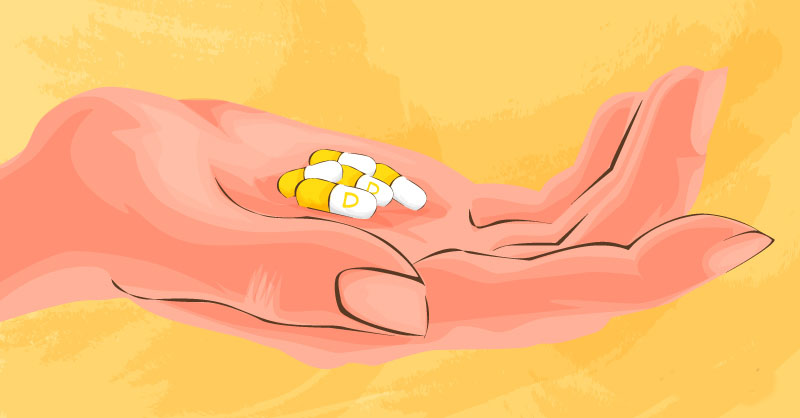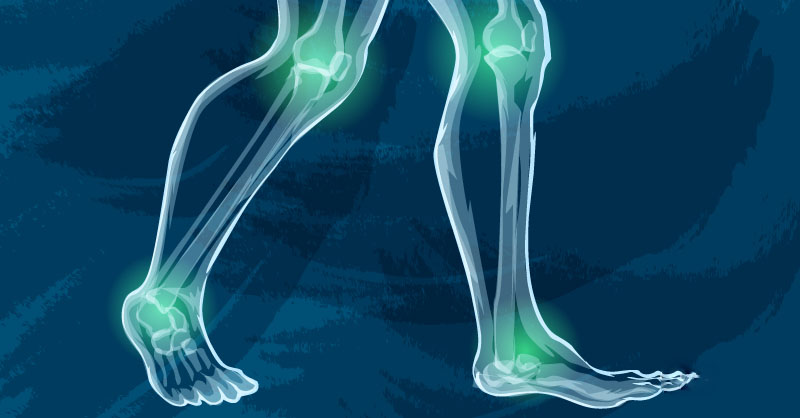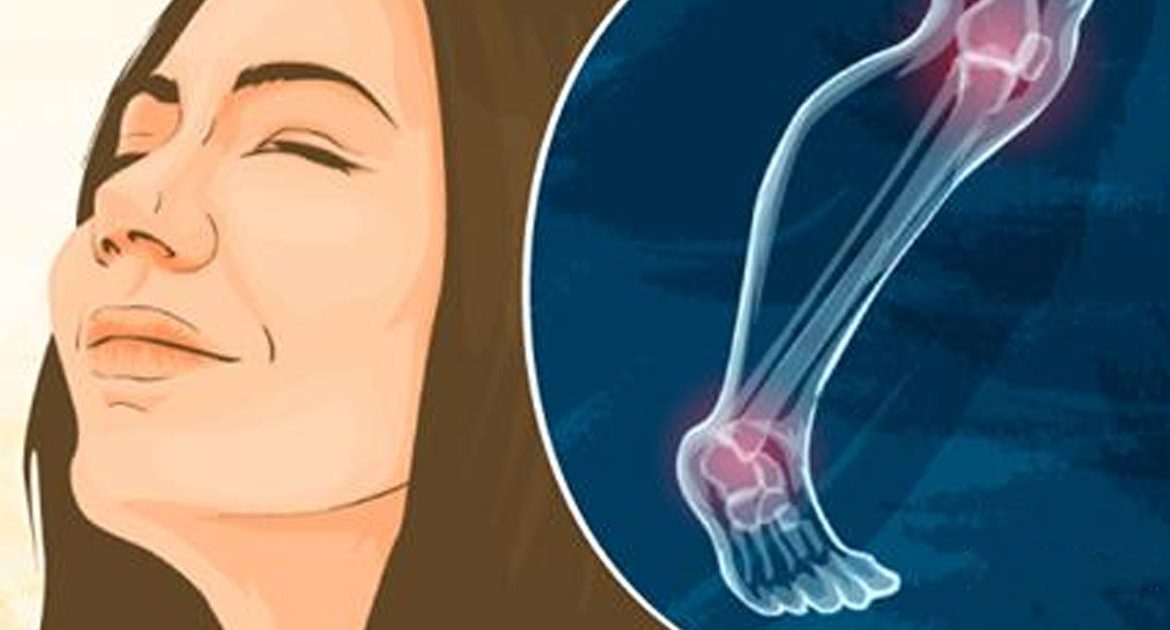Why is vitamin D important for your body?
Vitamin D is the only vitamin your body can produce on its own. Exposure to sunlight stimulates the production of this vitamin in your body, and you can also get it from certain foods and take a supplement.
Vitamin D aids the absorption of calcium, and one its main functions is to support bone health. It’s also important to have enough vitamin D to keep your muscles, nerves, and the immune system healthy. Vitamin D deficiency may go unnoticed if it’s mild, but if your levels of this vitamin have been too low over a period of time, you can start to experience symptoms such as fatigue, bone and muscle pain.
Vitamin D deficiency is very common: 1 billion people around the world may be deficient, according to some estimates.

How much vitamin D do you need?
According to MedlinePlus, the recommended daily intake of vitamin D depends on your age. Here is how much vitamin D people of different ages need to consume daily:
- infants up to 12 months: 400 IU (international units);
- children 1–13 years of age: 600 IU;
- teenagers (14–18 years): 600 IU;
- adults aged 19–70: 600 IU;
- adults aged 71 and older: 800 IU;
- pregnant and breastfeeding women: 600 IU.
People, who are at a high risk of vitamin D deficiency, may have a higher need of the vitamin.
Who is at a higher risk of vitamin D deficiency?
Certain groups of people are more likely than others to develop vitamin D deficiency. They include:
- babies who are fed exclusively with breast milk for prolonged periods of time;
- people who live in areas where there’s not enough sunlight;
- elderly people;
- people with dark skin;
- overweight and obese people;
- people with liver disease or kidney disease
- people with Crohn’s disease, celiac disease, and other conditions that affect the absorption of vitamin D and other nutrients;
- people who take medicines that interfere with the metabolism of vitamin D, such as anticonvulsants and glucocorticoids.
If you are at an increased risk of vitamin D deficiency, your doctor will likely recommend a supplement.
What are the symptoms of vitamin D deficiency?
If your deficiency is mild, you will not have symptoms, or they will be barely noticeable. But if your deficiency is more serious, you may have the following signs and symptoms:
Frequent infections
Having enough vitamin D is vital for your immune system, and if you’re deficient, you may get colds and other infections more often.
Tiredness
You can feel constantly tired for many reasons, including vitamin D deficiency. If your doctor suspects that’s the case, he or she will order a blood test to measure your levels of vitamin D.
Bone and muscle pain

Vitamin D is vital for your muscles and bones, and if you don’t have enough of it, your bones and muscles may hurt.
Depression
The connection between low levels of vitamin D and depressed mood isn’t exactly clear, but some studies suggest that taking a supplement may improve depression, according to HealthLine.
Cognitive problems
If you have low levels of vitamin D, you’re likely to experience problems with memory and concentration, and difficulty thinking clearly.
How to get more vitamin D?
Lack of vitamin D in your body can contribute to serious health problems, such as osteoporosis and cardiovascular disease. Fortunately, the problem can be treated or prevented by getting more vitamin D from diet changes and being in the sun. Being outside in the sun when it’s the least active can help stimulate vitamin D production in your body, but it’s important to keep in mind that excessive sunlight exposure is harmful.

Foods rich in vitamin D include fish (such as salmon, herring, tuna, and mackerel), beef liver, eggs, mushrooms, and cheese. Include them in your diet to prevent deficiency. There are also fortified foods; products that often have added vitamin D include milk and dairy products, soy products, orange juice, and breakfast cereals. You can also ask your doctor whether you need a supplement.






